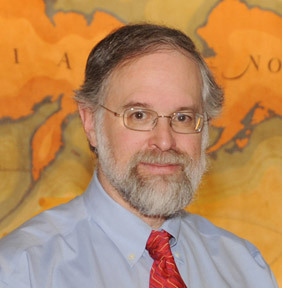
Professor Steven Buechler, chair of the Department of Applied and Computational Mathematics and Statistics, has watched the ESTEEM program expand its connections and expertise while students helped advance his cancer diagnostics tools toward commercialization. Derek Athy, Buechler’s third ESTEEM student, started working with him last summer, soon after Buechler and Sunil Badve, a clinical pathologist specializing in breast cancer at the IU School of Medicine, formed SYSGenomics, LLC.
“Derek is doing a lot of the work that’s more on the business side of things,” Buechler says. “My work has progressed to the point where I am taking serious steps to commercialization. I’ve learned a lot more about this type of business, and I can advise him on what needs to be done.”
These molecular diagnostics tests for breast cancer and colon cancer are designed to provide information that can help doctors and patients adopt the best treatment strategy. Such tests might help a patient avoid unnecessary chemotherapy treatments after surgery or reveal that a person with early-stage colon cancer is at unusually high risk for more serious conditions and should receive chemotherapy.
“We’re in the process of going through the patenting process and developing a business plan for a company that can commercialize these products and develop them further,” says Buechler, who hopes to have products ready for market within three years. “We’re trying to value the company around all the products we may produce. Derek has to have an overview of everything we’ve got and how these different tests should be brought to market in different stages. He will write a business plan and analyze the technology. There’s a lot to an ESTEEM thesis.”
Athy, who worked at the University of Chicago Medical School as a research coordinator, has conducted dozens of interviews with physicians in the potential market for the technology.
“He has a lot of experience working with doctors,” Buechler says. “What he has done for us is a lot of talking to doctors at different hospitals, at different levels of specialty, to gauge whether they would be interested in buying the product that we want to create, and also gauging their level of satisfaction or dissatisfaction with the competition. He’s talked to probably 25 or 30 doctors at this point. The information we have gotten from him has been invaluable.”